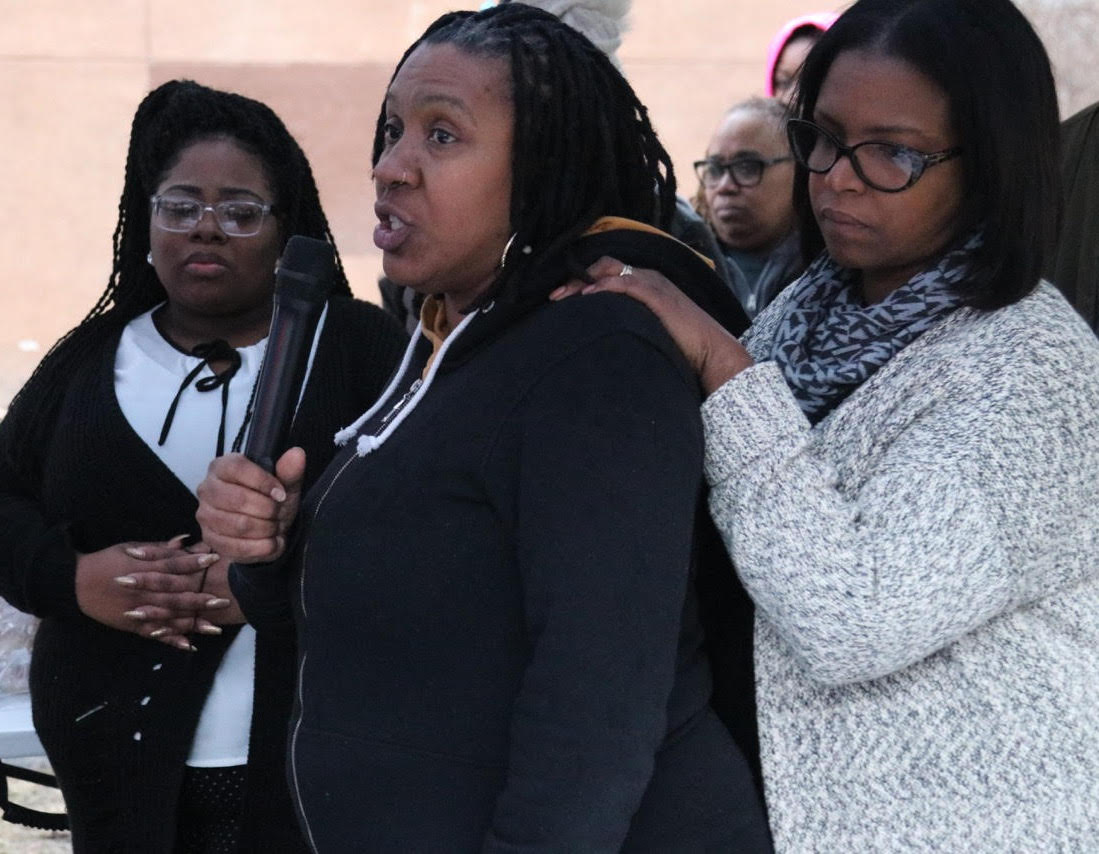
Some people are born into a vocation—whether it’s teaching, making art, or training to be a physician. They know from an early age and pursue their goals with laser focus. For others a career path winds and shifts directions as life intrudes and uncovers opportunities that weren’t previously apparent. Lisa Good belongs in that latter group.
Today, Lisa is the founder of Urban Grief, an organization based in Albany, NY, that provides critical, trauma-informed support for victims of violence while also acting as a fierce advocate for awareness and policy change to reduce violence. (Lisa is also a vital member of the EJUSA board of directors.) But she is the sum of her parts, and to understand how she came to her calling, you have to go back to her youth and understand that she is a crime and sexual assault survivor several times over.
She told her story to Vogue in 2017. Lisa grew up an only child, so several cousins became her siblings. When she was 17, one of those cousins, Jay, was murdered during a robbery. For Lisa, it was the same as losing a brother.
“That really took me on a path of self-destruction,” said Lisa, in the Vogue essay. “I found myself in a lot of high-risk situations, drinking and hanging out with a bad crowd.”
After being raped, she also found she wanted vengeance. Luckily, she had a friend who kept her from making a tragic situation far worse.
Lisa soon married a man who would violently abuse her for years, even after she had left him. Her trauma continued to accrue, even when her ex-husband was himself murdered. She feels fortunate that she was able to go to therapy for free to get some help. “People need to know it’s okay to get help,” she said. “Access to programs doesn’t necessarily lead to utilization when it comes to this kind of pain.”
By 2001, Lisa had already spent nearly a decade helping those struggling with substance abuse, first as a counselor and then as the program director of a residential substance abuse facility. But she felt pulled to start Urban Grief. “It was a call from God in the face of overwhelming grief and trauma that I witnessed firsthand after violence,” said Lisa. “I wanted to know who was helping, so I did a needs assessment. This included interviewing survivors and I found that no one was offering help.”
One of the cornerstones of Urban Grief’s mission is to perform outreach to shooting victims and the families of those who have been murdered. Over the course of her career, Lisa continued to uncover gaps that weren’t being addressed. “My overall observation is that people of color don’t generally know about victims’ services,” she said. “They are not given basic information and sometimes feel re-victimized by their interactions with systems. A lot of the time, this means that the criminal justice system was traumatic for them and didn’t provide real justice or address the need for safety.” The consequence of this is that the cycle of trauma and violence, when unaddressed, perpetuates.
The week of April 7 is National Crime Victims’ Rights Week, an ideal time to talk about what survivors need as they deal with trauma. Over the course of 18 years of doing this work, and informed by the trauma she’s survived plus her training and expertise on the traumatic impact of violence, Lisa has zeroed in on some fundamental needs that all survivors should get: care, dignity, and respect. It seems so simple, and yet so often reality tells a far different story.
“Sometimes when I hear families describe their encounters, they’re treated more like criminals,” she said. “They come away feeling like they’re being treated as suspects and without any empathy.”
Lisa’s advocacy is critical, whether she’s raising awareness throughout a community about the impact of violence and trauma in their own lives or sitting with a survivor in the immediate aftermath of violence. In that moment, especially, she has found that keeping it simple is the way to go.
“The first step is I just ask: ‘How can I help? I’m here to help.’”



